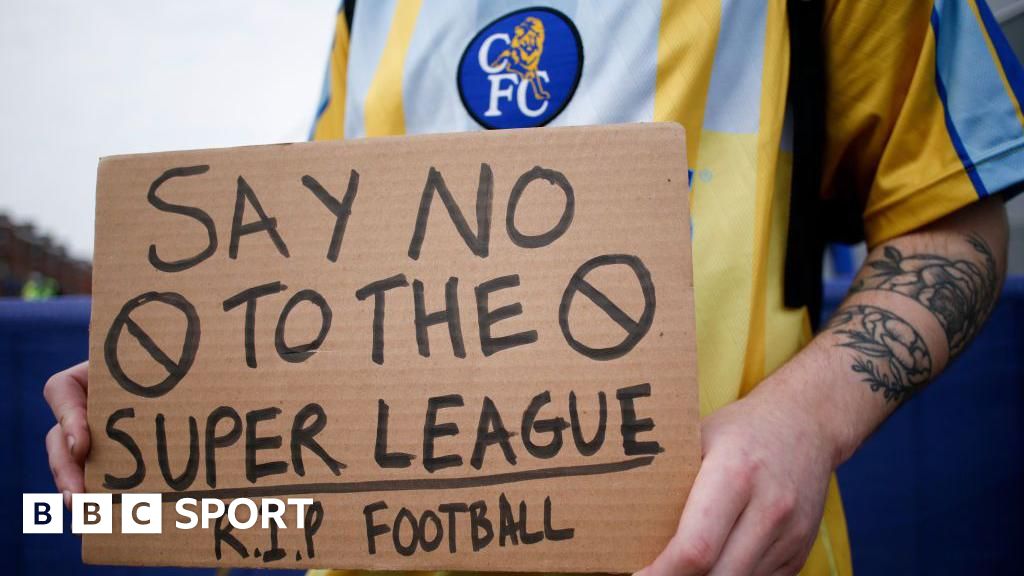Image source, Getty Images
Uefa and Fifa were wrong to ban clubs from joining the breakaway European Super League, a Spanish court has ruled.
Madrid’s commercial court said the European and world governing bodies were practising anti-competitive behaviour and abusing their dominant position.
However, Uefa says the ruling is not an endorsement of the ESL or backing of any proposal.
The case was brought by A22 Sports Management, the company behind the ESL, against Uefa, Fifa, Spain’s La Liga and the Spanish football federation (RFEF).
Uefa has since changed its rules around new competitions following the collapse of the ESL proposal in April 2021 and the court says those new rules are unaffected by Monday’s ruling.
Uefa said the ruling “has not given the green light to, nor has it approved, projects like the Super League”, while La Liga added the court “did not endorse” the project.
Bernd Reichart, chief executive of A22, took a different view, saying the ruling meant “the era of the monopoly is now definitively over” and was “an important step towards a truly competitive and sustainable club football landscape in Europe”.
Reichart also accused Uefa of stifling innovation and said clubs “should not have to fear threats of sanctions simply for having ideas and conversations”.
The ESL saga began in April 2021 when news broke that 12 teams – including English teams Arsenal, Chelsea, Liverpool, Manchester City, Manchester United and Tottenham – had signed up to the breakaway competition.
There was widespread fury and condemnation from fans, other European leagues and even government, leading to the collapse of the plans within 72 hours.
The six Premier League clubs plus Atletico Madrid, Inter Milan and AC Milan were fined by Uefa, but action against Real Madrid, Barcelona and Juventus was halted during the legal process, although Juventus signalled their intention to quit the project in July.
Analysis by BBC chief football news reporter Simon Stone
It is not unusual in the European Super League saga for those backing it and those vehemently against to come up with vastly differing observations around the same judgement.
Effectively, at the end of last year, the European Court of Justice created a system that would allow competing tournaments to Uefa’s.
A22 have been quite bullish about getting clubs to join a ‘rebel’ tournament but are yet to announce anything concrete and in the meantime the European Clubs’ Association is growing in size and influence under the guidance of Paris St-Germain chair Nasser Al-Khelaifi and chief executive Charlie Marshall.
In addition, world governing body Fifa backed away from a legal argument over domestic matches being played in overseas territories, something La Liga is keen to push the button on.
Today’s judgement has triggered another round of competing statements but regardless of who has ‘won’ and ‘lost’, big change in football is not far away.

